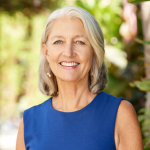Keeping Humanity at the Center of AI in Schools

The impact of AI on the field of education and how we can best support teachers and administrators has been a strong focus at CATDC this spring and summer, leading us to develop a new AI learning path. My own learning about AI as a powerful disrupter and enabler grows not only from my work as an educational leader, but also my experience as a student.
I began graduate-level work in liberatory community psychology in the fall of 2022 just as generative AI was entering more fully into the public consciousness. By the next fall, ChatGPT had gone viral, and after attending Eric Hudson’s first session with CATDC on Making Sense of AI, I began experimenting with different chatbots myself. AI soon became an invaluable tool and, as I shared with friends and colleagues to their skepticism and surprise, a good thought partner.
On many a long night as I struggled to make sense of dense academic texts or finish up papers, I was grateful to have Claude.ai as a collaborator, helping me to decipher concepts, consider new questions, and test possibilities. With decades of experience as a student and teacher, I have brought both caution and critical awareness to my use of these tools, and know students may not. I worry about the potential cognitive consequences of overreliance on AI and the way in which, as Ezra Klein recently wrote in the NY Times, these “tools are worming their way into our lives — not by being officially integrated into our schools and workplaces but by unofficially whispering in our ears.” Ethan Mollick shares in his most recent blog that over a billion people are using chatbots regularly.
So how can we integrate generative AI officially, intentionally, effectively? As I so often do, I turn to Eric Hudson to inform my own thinking and work with schools: his latest blog “Back to School with AI, Year Three” is rich with critical questions and resources. In addition to staying abreast with the latest research, learning all we can individually and collectively, we must continue to center our deepest values.
While CATDC is first and foremost a cocreator of transformational professional development, building relationships and creating meaningful connections within and between schools is a core value. At the center of this work for me personally is beloved community, the vision held by Dr. Martin Luther King Jr. and others of a society grounded in love, justice, nonviolence, and equity: a vision that inspires me to do what is in my power to create and sustain schools where children not only gain essential knowledge and new skills but also understand their responsibility and grow in their agency to create a more just and compassionate world.
It has been useful as a CATDC team to reflect on what AI can’t do when it comes to education, and out of curiosity, we posed this question to AI itself. Here is its summary response — AI can simulate intelligence, but it cannot do the most essential work of education: build authentic relationships, understand the full context of a child’s life, model the ethical and moral guidance that shapes young people into citizens. Nor can it inspire with genuine passion, care for students in moments of vulnerability, or nurture the sense of belonging that is the beating heart of schools.
I appreciate these insights, and they ring true, especially beginning a new school year with such a tragic reminder of just how vulnerable young people are in today’s world. All of us at CATDC look forward to walking alongside you in lifting up what it means to be human, to belong; experimenting intentionally with AI as a partner in our work, and doing all that is in our power to create the communities of care we want for our students and for ourselves.

A lifelong educator of youth and adults, Lisa Haney believes deeply in the transformative power of education. She began her career focused on international and multicultural education, teaching in Japan, Mexico and Martinique before landing at the Athenian School in Danville, California. In her 25 years at Athenian she served in many roles, including international program director, literature teacher, and humanities department chair, before becoming dean of faculty development and a member of the leadership team. Beyond Athenian, Lisa has engaged in teacher education through UC Berkeley Extension, as well as the Berkeley and San Francisco Unified School Districts, and was selected for a year-long fellowship by the US State Department to support teacher development in Tanzania. Lisa holds a B.A. in English from the University of California, Berkeley and a M.A.T. from the School for International Training, Vermont. She is board chair at the Berkeley School and an enrolled student in a Masters/PhD program in community psychology at Pacifica Graduate Institute.
